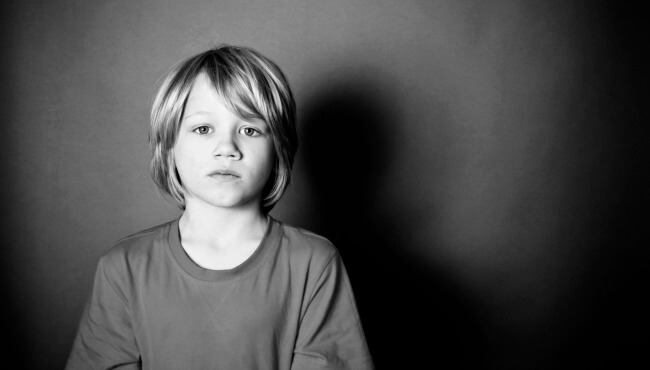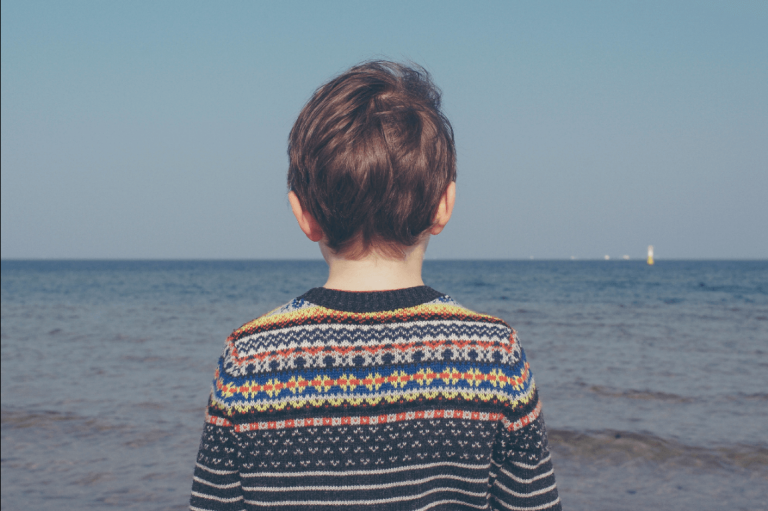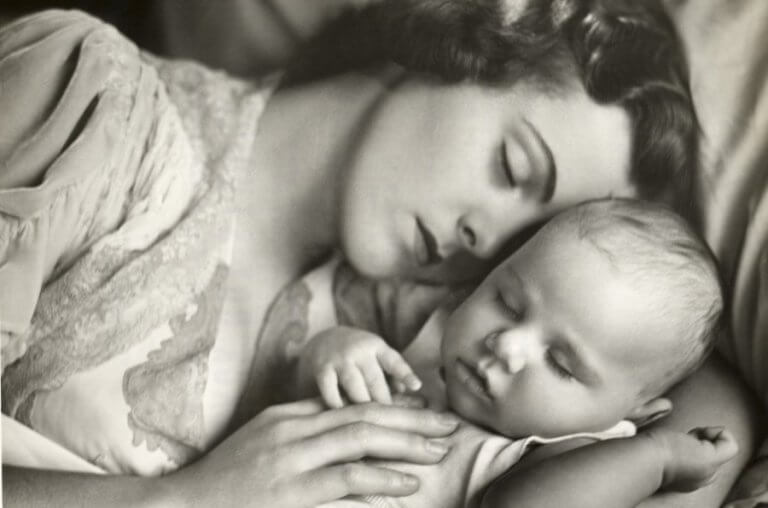Left in the Corner: Forgotten Children


Written and verified by the psychologist Valeria Sabater
Forgotten children. The child that wasn’t loved by his parents. The child that grew up in a corner. He will be stuck there for decades, even when he becomes an adult, because his childhood was stolen and love denied. He is still linked to the hungry and angry child he once was. He remains stuck in his childhood trauma.
The book Parenting from the Inside Out, by psychiatrist and professor Daniel J. Siegel, provides the perfect term to go with this forgotten child: culture of shame. Behind these words hides a buried reality of which we are not often aware.
We refer to the small children who live ashamed and confused because they don’t live in a typical family. They are without recognition, compassion, care, security.
“Childhood doesn’t last, but everyone deserves one.”
-Wendy Dale
The forgotten child is one without a role in the home. It is the child who asks and never receives, the child who has learned that crying is useless. It is the child who never saw himself reflected in his parent’s eyes or felt their embrace. The forgotten child who never had an authentic home or caress that would assure him everything was going to be fine. No one taught him to believe, in magic, in the universe, even in himself.
These children of the culture of shame end up losing themselves in the abyss of uprooting, rage, and silence. A discouraging scenario that, believe it or not, is very common in our society.

The forgotten child, neglected lives
When we think of the forgotten child, we often think of dysfunctional families. These are environments in which physical and verbal abuse, immature parents, and mental trauma are common. Where the child is marginalized. An environment characterized by emotional imbalance, security, and fear.
Now, it is important to clarify something: the forgotten child lives closer to us that we think. He could even be our neighbor. Perhaps he lives in an elegant house with three floors, or has parents that always seem friendly and smiling. Perhaps you see them with their silent child by the hand, a hidden sadness in his eyes as they take him to school or after school activities.
Maybe he has his own set of keys, and you see him entering and exiting his house alone because his parents work every day, as they should. They come home tired with no energy to interact with or listen to him. This, is what should never be. In this situation, there is not violence, but the dysfunction is obvious. This, too, is a type of mistreatment: the lack of real love, the lack of a conscious and present parent, the lack of feeling for the child.

No one should live in a corner
No one should live in a dark room without affection. Spending childhood in this kind of environment, full of shadow and without affection, will create internal conflict in the child that may take decades to resolve. Interestingly, Elisabeth Kubler-Ross wrote in her book, On Grief and Grieving, those with traumatic childhoods have to go through a very particular type of grief.
“One of the luckiest things that can happen to you in life is, I think, to have a happy childhood.”
–Agatha Christie
The Swiss-American psychiatrist explains that it is like starting surgery on a series of disordered emotions hidden in boxes. Each box becomes messier the deeper you go. It is a chaotic internal world where everything exists at once: rage, anger, deception, neglect, and depression.
The forgotten child often turns into an inaccessible adult, people who keep to themselves and can’t form enduring and meaningful relationships. This is because, in a way, they are still living in this culture of shame, where they constantly wondering what they did in order to be unworthy of love. They never received the love necessary to build and grow as a person.

No one deserves to live in a corner, especially not children. Our little ones deserve to be attended to with caring words. They deserve our time even when we have had a long day. Furthermore, they deserve our never-ending patience and consolation.
I want to conclude with a proposal: invest in parenting and conscious education. Let’s avoid leaving more forgotten children, more lost childhoods. Think about the consequences your actions will have for the rest of your child’s life.
Forgotten children. The child that wasn’t loved by his parents. The child that grew up in a corner. He will be stuck there for decades, even when he becomes an adult, because his childhood was stolen and love denied. He is still linked to the hungry and angry child he once was. He remains stuck in his childhood trauma.
The book Parenting from the Inside Out, by psychiatrist and professor Daniel J. Siegel, provides the perfect term to go with this forgotten child: culture of shame. Behind these words hides a buried reality of which we are not often aware.
We refer to the small children who live ashamed and confused because they don’t live in a typical family. They are without recognition, compassion, care, security.
“Childhood doesn’t last, but everyone deserves one.”
-Wendy Dale
The forgotten child is one without a role in the home. It is the child who asks and never receives, the child who has learned that crying is useless. It is the child who never saw himself reflected in his parent’s eyes or felt their embrace. The forgotten child who never had an authentic home or caress that would assure him everything was going to be fine. No one taught him to believe, in magic, in the universe, even in himself.
These children of the culture of shame end up losing themselves in the abyss of uprooting, rage, and silence. A discouraging scenario that, believe it or not, is very common in our society.

The forgotten child, neglected lives
When we think of the forgotten child, we often think of dysfunctional families. These are environments in which physical and verbal abuse, immature parents, and mental trauma are common. Where the child is marginalized. An environment characterized by emotional imbalance, security, and fear.
Now, it is important to clarify something: the forgotten child lives closer to us that we think. He could even be our neighbor. Perhaps he lives in an elegant house with three floors, or has parents that always seem friendly and smiling. Perhaps you see them with their silent child by the hand, a hidden sadness in his eyes as they take him to school or after school activities.
Maybe he has his own set of keys, and you see him entering and exiting his house alone because his parents work every day, as they should. They come home tired with no energy to interact with or listen to him. This, is what should never be. In this situation, there is not violence, but the dysfunction is obvious. This, too, is a type of mistreatment: the lack of real love, the lack of a conscious and present parent, the lack of feeling for the child.

No one should live in a corner
No one should live in a dark room without affection. Spending childhood in this kind of environment, full of shadow and without affection, will create internal conflict in the child that may take decades to resolve. Interestingly, Elisabeth Kubler-Ross wrote in her book, On Grief and Grieving, those with traumatic childhoods have to go through a very particular type of grief.
“One of the luckiest things that can happen to you in life is, I think, to have a happy childhood.”
–Agatha Christie
The Swiss-American psychiatrist explains that it is like starting surgery on a series of disordered emotions hidden in boxes. Each box becomes messier the deeper you go. It is a chaotic internal world where everything exists at once: rage, anger, deception, neglect, and depression.
The forgotten child often turns into an inaccessible adult, people who keep to themselves and can’t form enduring and meaningful relationships. This is because, in a way, they are still living in this culture of shame, where they constantly wondering what they did in order to be unworthy of love. They never received the love necessary to build and grow as a person.

No one deserves to live in a corner, especially not children. Our little ones deserve to be attended to with caring words. They deserve our time even when we have had a long day. Furthermore, they deserve our never-ending patience and consolation.
I want to conclude with a proposal: invest in parenting and conscious education. Let’s avoid leaving more forgotten children, more lost childhoods. Think about the consequences your actions will have for the rest of your child’s life.
This text is provided for informational purposes only and does not replace consultation with a professional. If in doubt, consult your specialist.







